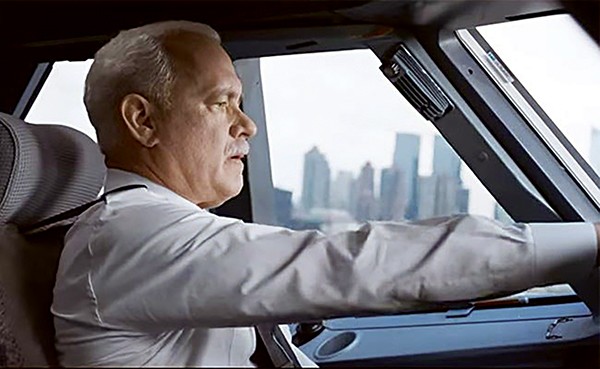The current state of the American Hero™ has become a bit of an obsession of mine since I started reviewing films on the regular. I’ve come to believe that the traits attributed to a film’s hero say a lot about the values of the film’s creators.
I’m loosely defining “hero” as “the guy you’re expected to root for.” Beyond the “antihero” trend that, let’s face it, has been going on since Humphrey Bogart, there’s been a subtle, but definite, change in the values portrayed by the heroes of big budget Hollywood product. Selflessness and duty are out, protecting your personal assets and genetic lineage at all costs is in. Take last year’s big budget disaster San Andreas, for example, where the Rock plays a rescue helicopter captain in the L.A. Fire Department. When the Big One hits, devastating California, this “hero” steals a chopper and bypasses literally thousands of potential rescues to go chasing after his ex-wife and daughter. If I was a firefighter, I would be offended by this characterization.
Then there’s Clint Eastwood’s 2014 war film American Sniper. In the old days, portraying an American soldier in a real life war zone as killing women and children would be enough to get you called in front of HUAC. But in American Sniper, when we meet our hero Chris Kyle, the very first thing he does is kill an Iraqi woman and child. That may or may not be something that Kyle actually did, but he did a whole lot of other stuff too, so why lead with it? Contrast that with the epic, four-hour biopic Che, where Steven Soderbergh completely omits Che Guevara’s time as commandant of the La Cabaña prison, where he was responsible for the execution of dozens of political prisoners. Soderbergh wanted to bury his subject’s brutality; Eastwood paints it as a virtue.

Which brings us to Sully, Eastwood’s latest film about the hero of the “Miracle on the Hudson”. On January 15, 2009, Captain Chesley “Sully” Sullenberger (Tom Hanks) was at the controls of US Airways Flight 1549 climbing out of LaGuardia airport in New York City with 155 passengers and crew onboard when the Airbus A320 flew through a flock of Canadian geese. Birds were sucked into both engines, which exploded, leaving the plane without power. It just so happened that Sully was a 42-year veteran pilot who moonlighted as a safety trainer and consultant, and he knew this was not a situation anyone ever trained for, because it was not considered survivable. And we have all seen what happens when an airliner crashes into one of the most densely populated areas on the planet. But Sully didn’t panic. He made a snap decision to ditch the plane in the Hudson River and saved all 155 people on board. “It wasn’t a crash,” Sully calmly tells the NTSB investigators early in the film. “It was a controlled water landing.”
The real-life Sully is someone whom Ernest Hemingway would recognize as a hero: a man doing his job to the best of his ability. Hanks is the perfect actor to portray Sully. But let’s get real: Hanks has been the best thing about practically every movie he’s been in. I’ll gladly watch Hanks do just about anything, as evidenced by the fact that I’m a big fan of Joe Versus the Volcano. He’s flawless as the low-key family man whose sense of duty means he was the last guy out of the sinking plane.
But — you knew there was going to be a “but” — here’s the problem with Sully. The whole ordeal, from takeoff to the rescue of the last passengers by a passing ferry, took about 24 minutes. The film runs about 96 minutes. Eastwood and writer Todd Komarnicki play with structure to create a kind of Rashomon Lite, with the NTSB investigators playing the part of inquisitor, but it’s so bluntly obvious that Sully did the right thing that there’s no real conflict, even when the director gooses the final courtroom scene with some artificial drama. Nor does Eastwood manage to create a sense of claustrophobia when Sully is thrust into the media spotlight. Sully is a feel-good movie about a guy who deserves hero worship, but it is also, unfortunately, a bit of a bore.